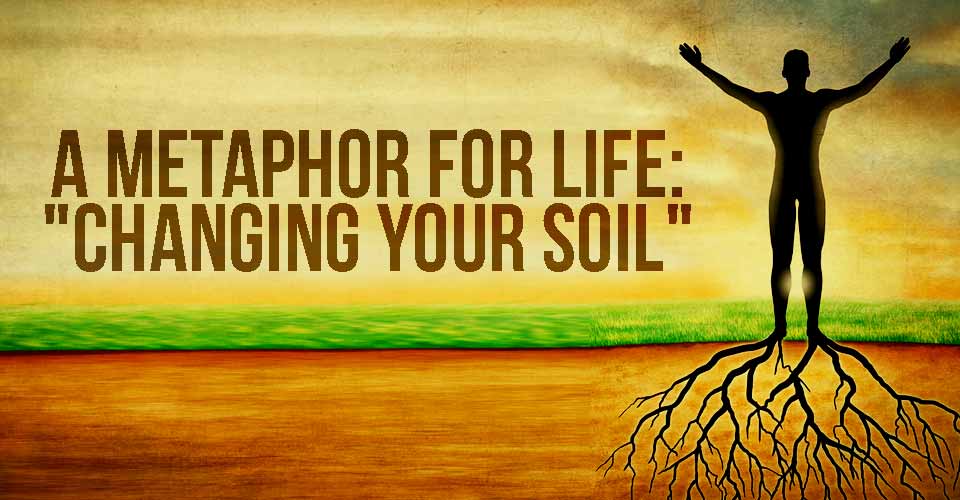
In the never ending rabbit hole that seems to be my sources for inspiration, I ran across a quote from a guy named Alexander Den Heijer that said “When a flower doesn’t bloom, you fix the environment in which it grows, not the flower.”
Now usually quotes like that process themselves through my optic nerve into my brain, mix in with all of the other stuff floating around in there, and get tucked away in my subconscious mind somewhere. Only to pop up awkwardly in conversation 6 months later like I just said something profound. But, in the case of this quote: I immediately took notice of it and let it sink in. Instead of the thought wandering off, it came charging to the forefront. I think what struck me about the statement is: as humans, we are extremely similar to our leafy cousins on a very basic level. We require the same kinds of care and cultivation, we face the same threats from parasites, and our environment is critical to our survival. The plant reference really hit home with me and sent my thought process pinballing away.
So, I want to take the plant metaphor a little deeper. You see, I like to fancy myself a gardener of sorts in that I can intentionally grow a plant when I want to. What I have learned from my short time as an amateur (at best) gardener is that the most critical element of good gardening is your soil. To apply that to life, your soil is where you are. Not only physically, but as a person. Your soil is your base. Your foundation. And just like with growing a plant, there are times that you need to change your soil to get the absolute most out of your plant (you).
CHANGING YOUR SOIL
GIVE YOUR SOIL WHAT IT NEEDS
There are very few places in the world where you can just dig a hole, throw a seed in it, and expect a plant to grow. There are factors like nutrients, Ph, and minerals that all determine how viable the soil really is. That being said, with work, you can take the leanest soil on the planet and make it fertile. It takes work and the right components, but it can be done. Our lives are the same way. There are things that we can add to our existence that will make us grow in ways we didn’t know we could. Things like taking up a hobby or meeting new friends. Find the things you love in life and make them a real part of your life. There is a huge difference in knowing that you need something in your life, and actually making it a part of your life.
COMPOST
One of the greatest things you can add to your soil is compost. Compost is essentially a collection of waste that is broken down for it’s nutritional value over time, which is then added to the soil. We don’t realize it, but we have compost in our lives as well. All of our experiences, good or bad, are processed and digested mentally and emotionally. These experiences are broken down into lessons that make us the people we are. Just like the chemical and biological processes of composting, this is a complicated cycle. It’s not something that happens automatically or immediately. Just like you can’t expect to just dump a pile of dead leaves and food waste on a seed and expect results, you can’t just apply a negative lesson to your life and expect to grow from it. Take the time to break it down. Take the best from every moment of your life, and use it to nourish the next moment.
MIX IT UP
Once you’ve started adding things to your soil that it needs to be fertile, it’s time to break out the tiller and mix it all together. This is also the least fun part for a gardener who doesn’t happen to own a power tiller or a mule and plow. But, mixing up your soil is critical to making it fertile. Again, our lives are exactly the same way. We need to mix things up. Get out of your routine. Travel, meet new people, wander, learn. This is where you apply those nutrients you mixed in with that compost. This is where you really provide that seed (you) with all of that potential you’ve managed to muster.
I am typically not one to get lost in a metaphor, but this one just stuck. There is something about the plant reference that has always made sense to me. I once wrote about how watching a seedling of a flower blooming was like watching a person grow as a person. As people, we tend to forget that, even though we are highly developed, we are still organic organisms with the same basic needs as all of the other organic organisms we share this floating space rock with. On a very basic level, why should we be any more complicated than they are?
Source: I Heart Intelligence















I admire what you have done here. I love the part where you say you are doing this to give back but I would assume by all the comments that is working for you as well. soil disposal nj
ReplyDelete